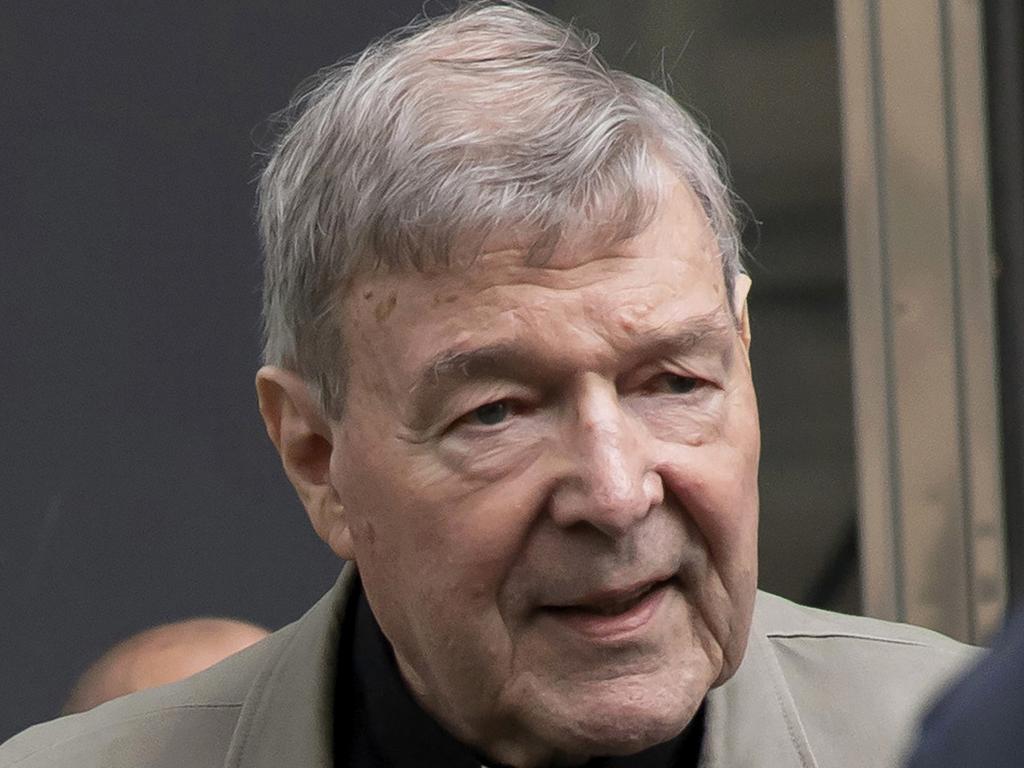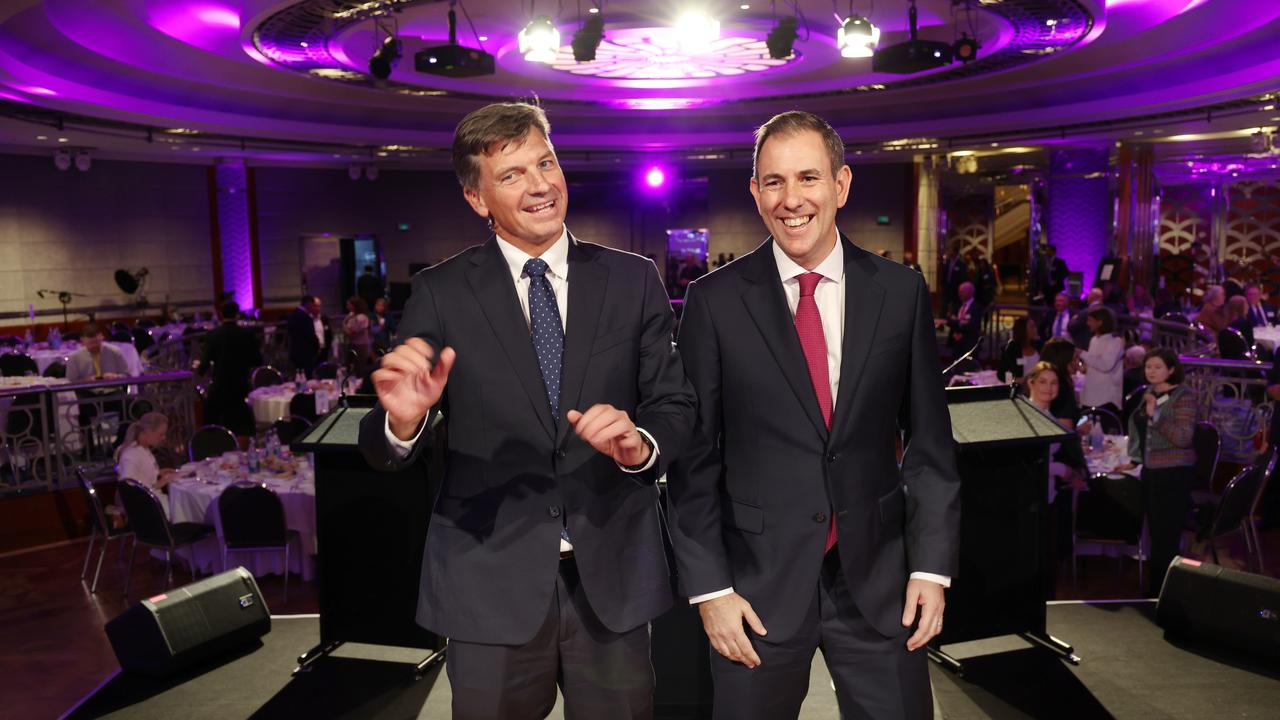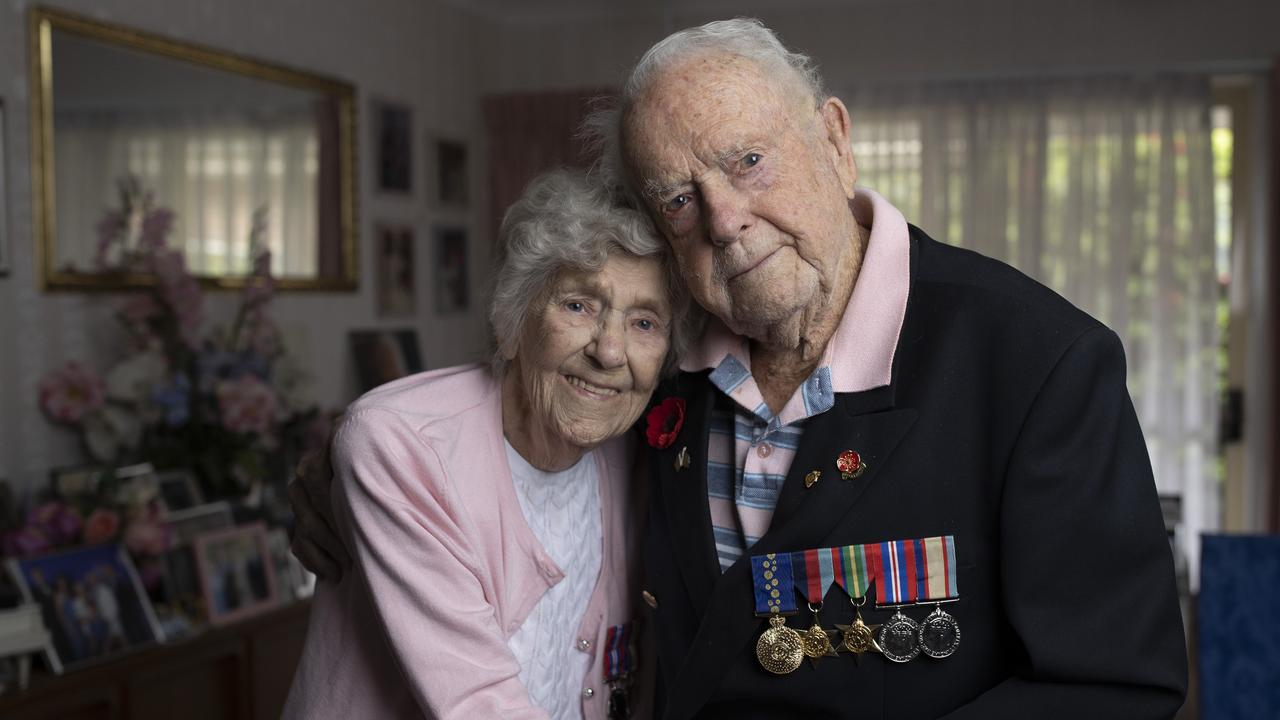George Pell ‘didn’t have time to abuse boys’, High Court hears
George Pell’s habit of talking to parishioners on the front steps of St Patrick’s Cathedral is central to his High Court appeal.
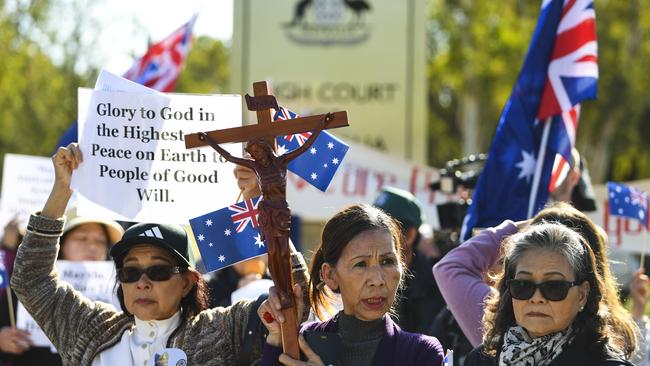
George Pell’s habit of talking to parishioners on the front steps of St Patrick’s Cathedral for at least 10 minutes after solemn mass and the alleged improbability of his sexual assault of two boys are the defining factors in his High Court appeal.
On Wednesday his silk, Bret Walker SC, outlined what he claimed was a series of problems with the Victorian Court of Appeal’s majority judgment, arguing that Pell’s convictions were wrong.
Amid doubts over the Court of Appeal’s use of video evidence while reviewing the convictions, Mr Walker said the cardinal would spend between 10 and 20 minutes on the steps greeting parishioners after mass — effectively providing him with an alibi.
Mr Walker said if the High Court were to accept that this occurred in December 1996, then there would have been insufficient time for Pell, 78, to peel away from the congregation and sexually abuse two choirboys.
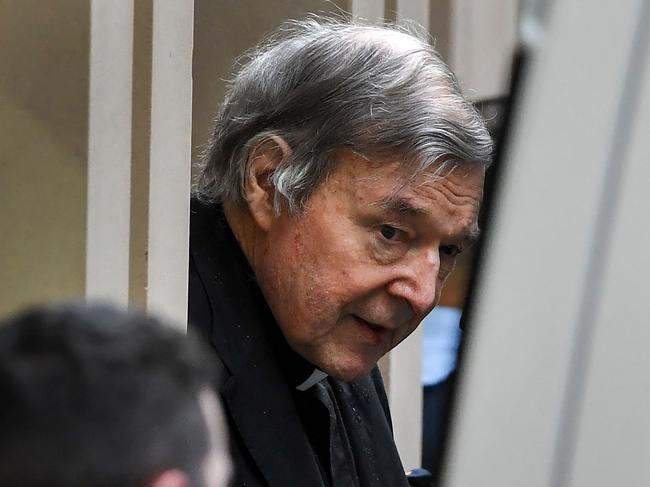
Another key argument advanced by Pell’s legal counsel was whether two of the three Victorian Court of Appeal judges were “unduly convinced” by video testimony from one of the complainants, giving the footage greater weight than the entirety of evidence available.
Chief Justice Anne Ferguson and Court of Appeal president Chris Maxwell found it was open to the jury to convict Pell, but Mr Walker said the court did not properly consider testimony provided by other defence witnesses, which suggested it was “unlikely” if not “improbable” that Pell was alone with the complainant and his friend.
The third Court of Appeal judge, Mark Weinberg, dissented.
Pell was convicted last year of five sex abuse charges against two 13-year-old choirboys, and was jailed for six years.
The convictions related to his time as archbishop of Melbourne, in 1996 and 1997.
There were a series of other abuse allegations from the Ballarat diocese that did not go to trial.
Mr Walker argued the majority of the Court of Appeal adopted a “piecemeal approach” to reach their conclusion and that being impressed by a compelling complainant did not eliminate the possibility of reasonable doubt.
“In what might fairly be called a piecemeal or one-by-one approach, their honours dealt with these circumstances, concluding in each case that that which had been described by the defence as impossible was not impossible,’’ Mr Walker said. He argued this was the “wrong question”, which sent the inquiry down a “terribly damaging wrong route’’.
The High Court has not yet formally granted Pell’s application for appeal but will hear on Thursday from Victorian Director of Public Prosecutions Kerri Judd QC before the court decides whether to grant or refuse Pell’s application for special leave.
The High Court can then either allow or dismiss the appeal.
Mr Walker said on Wednesday that Pell spent a minimum of 10 minutes and up to 20 minutes after mass on the front steps of St Patrick’s Cathedral.
If the full bench of the High Court accepts that Pell did spend this much time on the steps, then it would have been impossible for him to have abused the boys in the priests’ sacristy as he wouldn’t have had the five or six minutes needed to commit the offences.
Mr Walker cited evidence from Pell’s former right-hand man, Monsignor Charles Portelli, and the church’s former sacristan, Max Potter, as examples of people who had testified in a way that supported Pell’s innocence.
He said it was not possible for the crimes to have occurred in the five to six minutes the court found that Pell had abused the children.
“There is simply not the available time for it to occur,’’ Mr Walker said. “We cannot eliminate the possibility the archbishop was on the steps for too long not to have offended,” he added, therefore excluding “beyond reasonable doubt”.
But judge Michelle Gordon quipped: “What is the evidence giving rise to the possibility that he was on the front steps?”
Mr Walker said evidence from Monsignor Portelli and others “showed at least the possibility” that Pell was “meeting and greeting at the opposite end of the cathedral where he had to be at the time of the alleged offending”. He said the crown did not deal completely with evidence raised by Monsignor Portelli and others.
It was also heard that the Court of Appeal may have erred in watching the recorded video of the complainant’s testimony, rather than merely reading the transcript. Mr Walker said “there ought never be an occasion for the jurisprudence of the cinematography of a criminal trial”. Judge Virginia Bell questioned why the full bench had not been invited to watch the same evidence. “Why are we being taken to selected portions of the transcript?” she asked.
Mr Walker also argued that the jurors who convicted Pell were wrong to reject evidence about the improbability of the offending occurring. “It would be an extreme fallacy for anyone to suppose that the credibility of a complainant will supply an answer to reasonable doubt raised by evidence to which the complainant says nothing,” he said.
Justice Bell said credibility was the purview of the jurors, not the High Court, with the jury “satisfied beyond reasonable doubt that this was a truthful witness”. “The court is not in a position to make an assessment of what we often describe as credibility,” she said. The hearing continues on Thursday.



